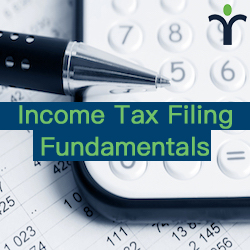Last updated: February 19 2019
Tax Filing Basics: Claiming Medical Marijuana After Legalization

With the 2018 legalization of marijuana in Canada, more taxpayers may wish to claim their purchase as a medical expense. That may be possible, but there are rules to follow to pass a CRA audit test.
Medical marijuana, when obtained with a prescription, can be claimed as a medical expense and that’s been the case for a number of years. But previously, this was also the only way to legally purchase marijuana, making it easier for the CRA to verify whether the claims were in fact eligible medical expenses. Now that cannabis can be purchased legally and anyone can provide a receipt for a marijuana purchase, it’s of increased importance that medical users have their documentation in line.
What should you know to avoid an audit? Here are the requirements, according to the CRA:
- Receipts proving the purchases were made from an authorized source (after October 17, 2018, that means the government)
- A valid medical marijuana prescription issued by a practicing medical doctor (not a naturopath or holistic practitioner)
- For medical marijuana obtained prior to legalization, the same documentation from an approved medical dispensary must be provided
When claiming medical marijuana during tax filing, these claims get rolled into your total medical expense claims, which can total no more than 3% of your net income up to a maximum of $2,302 (for 2018 claims). More tips on claiming eligible medical expenses and digging for commonly missed opportunities are available here.
Newly updated this week, the Income Tax Filing Fundamentals certificate course will help you get up to speed on all the basics you need to know for tax filing this upcoming season – as a new industry professional or as a taxpayer. It’s a great course for do-it-yourself taxpayers who want to file their own taxes proficiently, while taking advantage of available credits and deductions (including medical expenses), too.
This introductory course that provides each student with a solid foundation and understanding of personal taxation in Canada for low and middle-income taxpayers, including single employees, students, young families, retirees and investors. The successful graduate will the skills to file basic tax returns professionally with a high degree of confidence and understand the following concepts:
- Introduction to Canadian tax
- Tax filing for single employees
- Tax filing for employees with variations
- Tax filing for families – married with children
- Tax filing for families – marital change
- Tax filing for students
- Tax filing for retirees
- Tax filing for investors – non-registered accounts
- Tax filing for investors – capital property
- Basic tax planning
Additional educational resources: Interested in getting a glimpse of what this introductory tax filing course is all about? A free trial is available online. Tax professionals can also get up to speed on the latest tax changes, as introduced in this year’s federal budget by attending the Spring CE Summit workshops.
COPYRIGHT OWNED BY KNOWLEDGE BUREAU INC., 2019.
UNAUTHORIZED REPRODUCTION, IN WHOLE OR IN PART, IS PROHIBITED.





